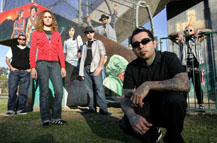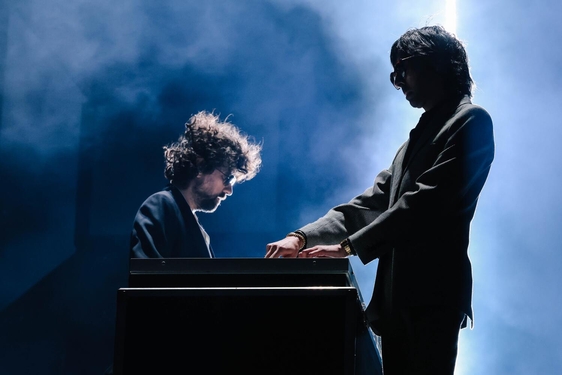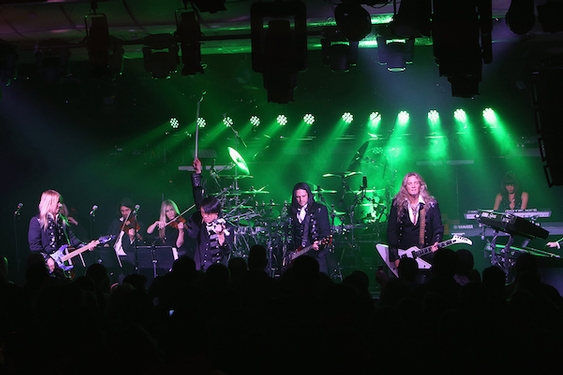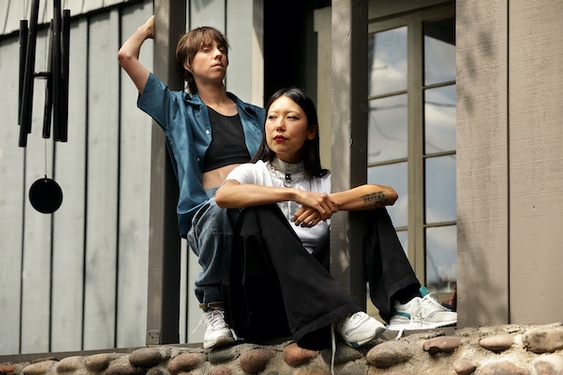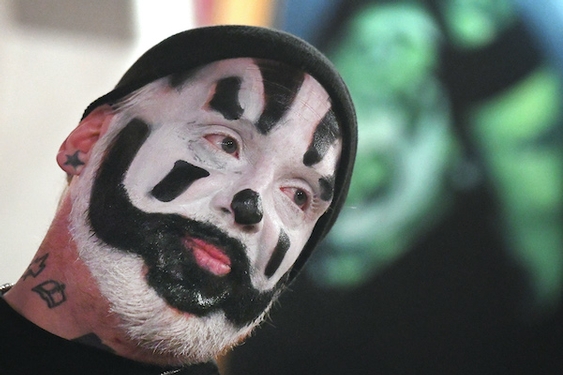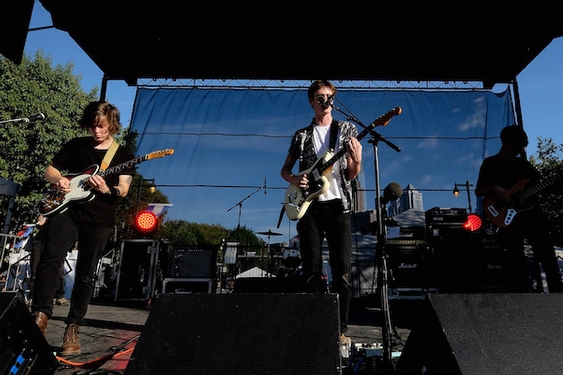Crank the stereo and check out bands that are creating music that is catchy, with a driving drumbeat, snotty, sarcastic and saturated with social commentary, expressed in both English and Spanish.
Enter the generation of Spanish punk rock, a phase of punk that is Southern California to the core.
Punk rock bands from Orange and Los Angeles counties have added a little flavor and personal identities to their sound by incorporating the Spanish language and mixing in traditional cumbia, merengue and salsa music.
Artists like Go Betty Go, Union 13, Los Abandoned and Left Alone are pushing this style of music into the mainstream. These bands have been on national and international tours, have songs playing on regional and national radio stations and have been signed to various indie labels.
A slew of other SoCal punk-style Spanish bands – 8 Kalacas from Anaheim, Cellphish from Whittier, El Nada from Huntington Beach and UpGround from East L.A. among them – are also hard at work in the scene.
Both counties have had an active punk scene since the '70s. With each decade, a new group of musicians has taken the music and molded it, spawning new genres.
Punk is a unifying force, a type of music that was created by and for the social outcast. The music creates a community of like-minded people who experience the same sort of issues.
But don't expect all of the Spanish punk rock bands to be carbon copies of each other. These bands perform various styles of the music – from ska and pop to hardcore – which distinguishes each of them.
“Yeah, we're Hispanic or Mexican and we all play punk rock, but we all sound very different,” Left Alone vocalist Elvis Cortez says. “We all fit into our own little music categories in the same punk rock world.”
These bands share stories about their upbringings, neighborhoods, triumphs and sorrows through song.
The members of Union 13 grew up on the streets of East L.A. They knew not to walk down certain streets, which places to avoid. Through hardcore punk rock, fast vocals and true-to-life lyrics, the band has been able to connect with its fans.
“We write about what people, not just in our neighborhood but in places around the country, can relate to,” Union 13 drummer Louie Villareal says. “Growing up in East L.A., it was either play music or become a gangbanger. We've seen a lot of shit happen. A lot of our friends have died.”
The scene is still relatively small, but is starting to grow out of backyard parties and dive bars and making its way into mainstream venues. As it spreads and more bands emerge, there will undoubtedly be more bilingual punk rock shows.
The Latin rock music scene is already globally popular. Mexican-American artists like Carlos Santana and Los Lobos paved the way, and in recent years, bands from Latin American countries – Juanes, Cafe Tacuba, Kinky and Mana, to name a few – have successfully catapulted from huge success at home to popularity around the world.
A diverse group of fans is showing up at local Spanish-punk shows to catch the buzz of the high-energy sets.
“People don't even know Spanish and they're singing our lyrics and dancing,” UpGround vocalist Danny Estrada says. “It doesn't matter if they know Spanish or not; they feel the vibe, good grooves make you dance and it all comes together whether you're brown, black, white, purple or green.”
Bands like 8 Kalacas give audiences a little bit of numerous styles of music and bring it all together in a hardcore, ska-punk style.
“It's the music we grew up with,” 8 Kalacas trumpet player Isaac Tin says. “We have band members from Argentina, Peru and El Salvador. The only good way we could get all of our tastes into the music was through ska.”
In December, Go Betty Go appeared with Los Abandoned at JC Fandango in Anaheim, Calif., and the turnout and diversity of the crowd (young white emo types in skinny jeans grooved next to a growing mosh pit of husky guys with shaved heads) impressed co-owner Javier Castellanos.
“One thing I noticed at the show was that there were a lot of non-Latinos showing up, which was nice to see – the crossover appeal,” Castellanos says.
Whether the scene will be successful comes down to what every punk in a band should already know about, do-it-yourself (DIY) promotion.
“Go Betty Go and Los Abandoned have done all of the grassroots stuff, that's why they get the tours and the calls for shows,” Castellanos says. “If you get out there and put yourself out there, educate yourself and do the work, then you'll start to get calls.
“Bands need to practice, promote and hustle. It's all about the hustle.”
© 2007, SqueezeOC.
Distributed by McClatchy-Tribune Information Services.


